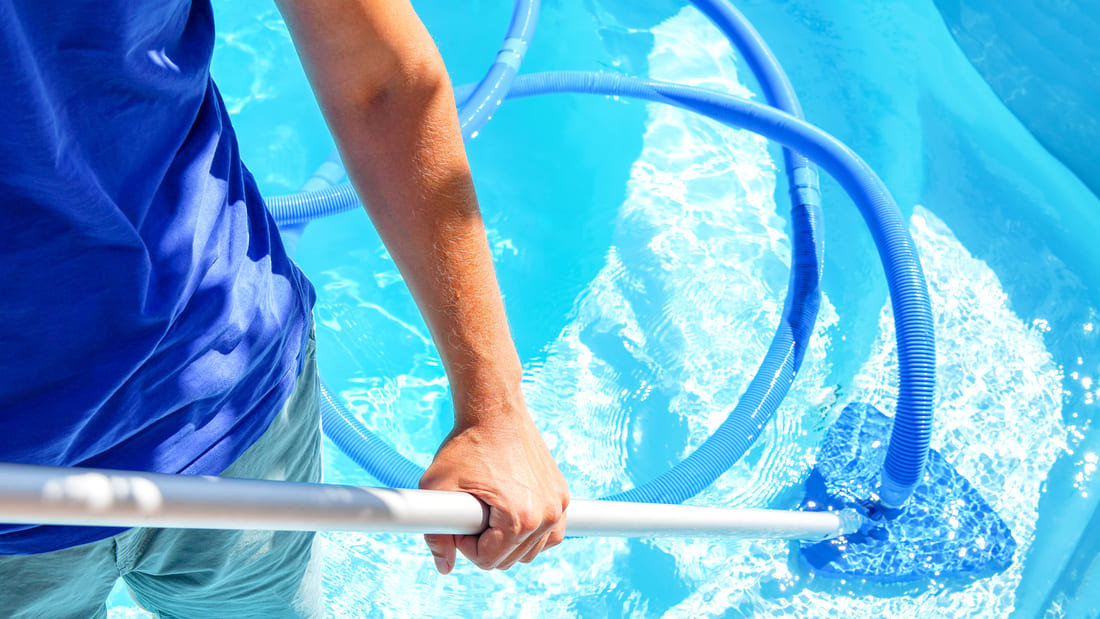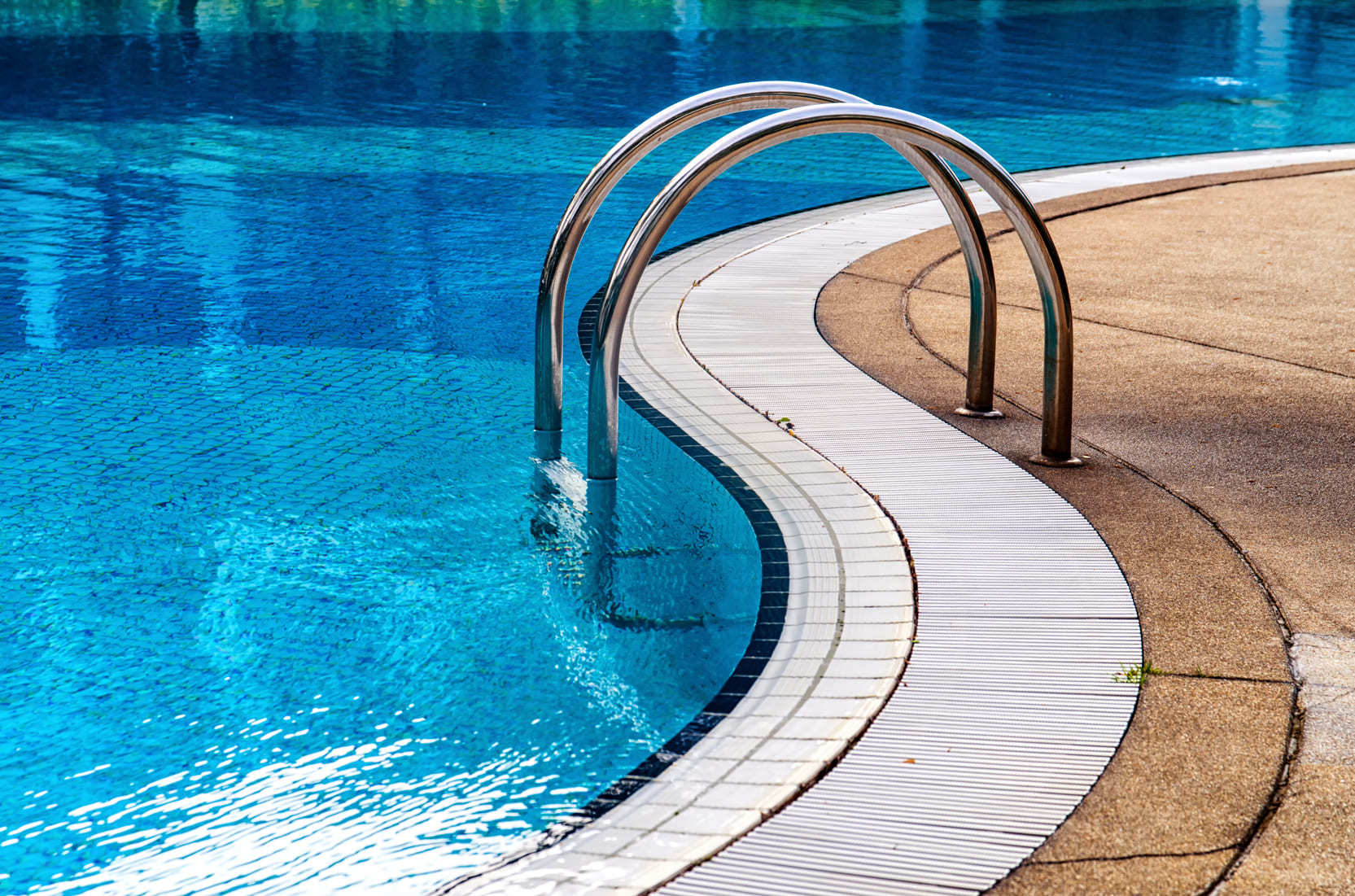
Owning a pool can be an exciting and rewarding experience, but it also comes with a significant set of responsibilities. From daily maintenance tasks to long-term planning and investments, pool ownership requires careful consideration and attention to detail. Whether you’re a first-time pool owner or seasoned professional, there’s always more to learn about caring for and enjoying your backyard oasis. In this blog, we’ll cover everything you need to know about pool ownership, including on-going maintenance.
Pool Maintenance: Tips for Keeping Your Pool Clean and Clear
Proper pool maintenance is critical to keeping your pool clean and clear, and it starts with regular cleaning and upkeep. Skimming the surface of your pool, vacuuming the walls and floor, and emptying the skimmer baskets are all essential tasks that should be done on a regular basis. Additionally, maintaining the proper chemical balance in your pool is crucial for keeping it clear and safe for swimmers.
Regularly testing and adjusting pH, alkalinity, and chlorine levels helps to prevent the growth of algae. Owning and using a pool cover is also essential to help prevent debris and dirt accumulating in your pool.
Maintaining Proper Chemical Balance: Testing and Adjusting pH, Alkalinity, and Chlorine Levels
This is a major component of pool maintenance. pH measures the acidity or alkaline level of the water and should be maintained between 7.2 and 7.8 - the ideal range is between 7.4 and 7.6. Alkalinity measures the ability of water to resist changes in pH and should be kept between 80 and 120 parts per million (ppm). Chlorine is a disinfectant that kills bacteria and other harmful microorganisms in the water. Chlorine levels should be kept between 1 and 3 ppm.
Testing should be done twice a week, and adjustments should be made as needed. Chemical imbalances can cause a host of issues including skin irritation, cloudy water, or algae growth. That’s why it’s crucial to keep up with regular testing and adjustments to ensure a safe and enjoyable swimming experience.
Maximizing Pool Safety: Tips for Preventing Accidents and Injuries
One of the easiest and most effective ways to enhance pool safety is to install barriers and fencing around the pool to prevent unauthorized access. It’s also important to keep walkways around the pool free of hazards such as toys, furniture, or any other tripping threats. Supervision is also essential, especially when children are in or near the pool.
Another tip is to keep pool chemicals stored safely and out of reach of children or pets. Regular visual inspections of pool equipment such as diving boards or ladders is also a great practice to adopt. Finally, ensuring that everyone using the pool has basic water safety skills, including a couple of family members knowing CPR can lead to peace of mind.
Pool Opening and Closing: Steps to Take at the Beginning and End of Each Season
When opening your pool, the first step is to remove the cover and clean the pool of any debris that may have accumulated over the winter months. After that, the pool filter, pump, and other equipment should be checked for any damage and repaired or replaced if necessary. As mentioned above, this is a great opportunity to check the chemical levels of your pool.
In contrast, if you decide to close your pool for a few weeks or months while you're out of town, the first step is to remove any debris and lower the water level. The pool and filter pump should be drained and all pool equipment, such as ladders or diving boards, should be removed and stored. Following these steps will protect your pool and equipment from damage and ensure a smooth opening and process each year.
Cleaning and Maintaining the Pool Filter: Preventing Clogs and Ensuring Efficient Filtration
Over time, your pool’s filter can become clogged with debris, reducing its efficiency potentially causing damage to the pump and other equipment. To prevent clogs, the filter should be cleaned regularly, depending on the type of filter and the amount of use. Some filters can be backwashed to remove debris, while others may require a chemical or mechanical cleaning.
It’s also important to check the filter pressure regularly and backwash or clean the filter when the pressure exceeds the manufacturer’s recommendations. Additionally, the filter media, such as sand or cartridges, may need to be replaced periodically to maintain proper filtration. By keeping up with regular cleaning and maintenance, you’ll ensure efficient filtration.
Maintaining Pool Equipment: Pump, Motor, and Other Essential Equipment
Pool equipment, such as the pump, motor, and other essential components are responsible for circulating and filtering the water, maintaining proper chemical balance, and ensuring you get the most out of your pool. To ensure efficient operation, the pool equipment must be checked regularly for any signs of wear or damage, such as leaks, cracks, or unusual sounds.
It’s also important to keep the components free of clogs or debris, especially the pump and motor. You'll also want to inspect the pool’s plumbing and electrical connections, looking for leaks, loose connections, or signs of corrosion. Through consistent and thorough inspections, you can address potential issues early on, preventing costly repairs.
The Value of Hiring a Professional Before Buying: A Wise Investment
When you’re in the market for a new home with a pool, hiring a professional to do an inspection on the pool might seem like an unnecessary expense. However, a professional inspector can identify any structural or mechanical issues with the pool, such as leaks, cracks, or damaged equipment that may not be immediately apparent to the buyer.
Additionally, an inspector can assess the overall condition of the pool and provide recommendations for maintenance or upgrades that might be needed. By having an inspection done, you can make an informed decision and avoid unexpected expenses down the road.
In Closing
Owning a pool can provide years of enjoyment for you and your family, but it also requires regular maintenance and care to ensure a safe and clean swimming environment. By following best practices for pool maintenance and care, you can avoid costly repairs, prolong the lifespan of your pool components, and maximize your happiness with your pool. As a reminder, if you’re considering purchasing a home with a pool, it’s important to have a professional inspection done to ensure that the pool is in good condition and won’t require expensive repairs in the future.
Are you considering buying a Florida home with a pool? The Real Estate Collection can help! Our local realtors are experts in their areas and specialize in home buying and selling and property management. Leave us a message here with any questions you may have or call our Central Florida office at 407-656-7814 or our South Florida office at 954-760-5885.

From Atlantic Coast To Gulf Coast - The Real Estate Expertise You Deserve
Get in touch

Leave A Comment